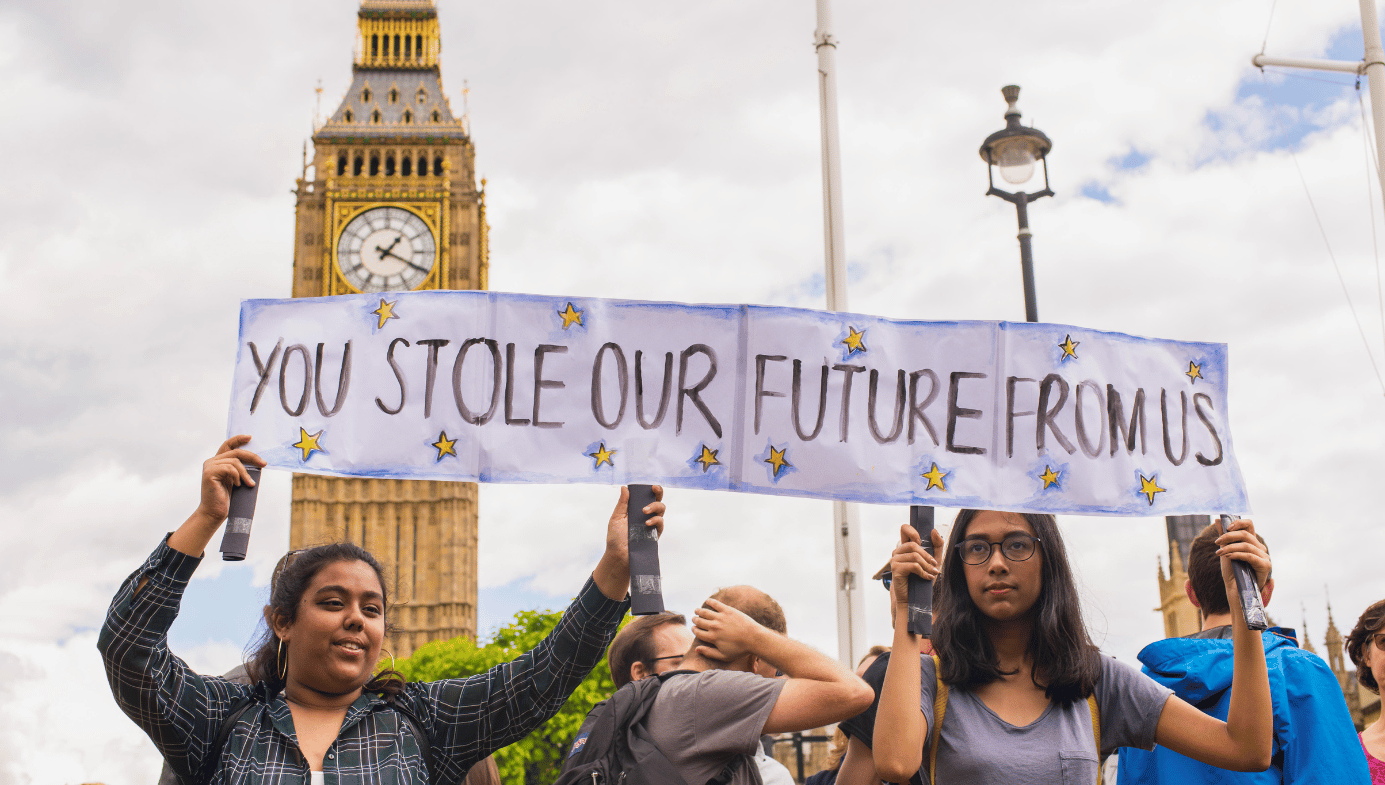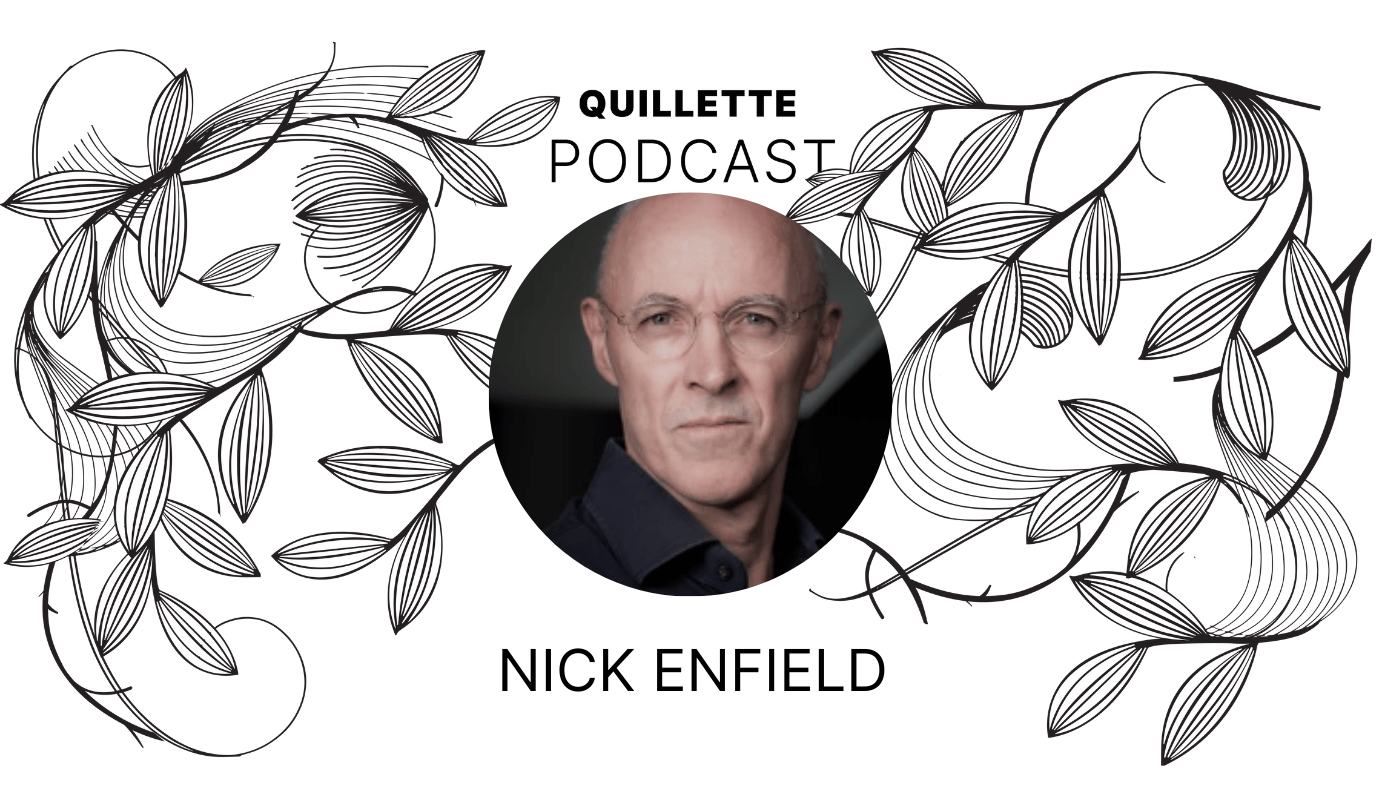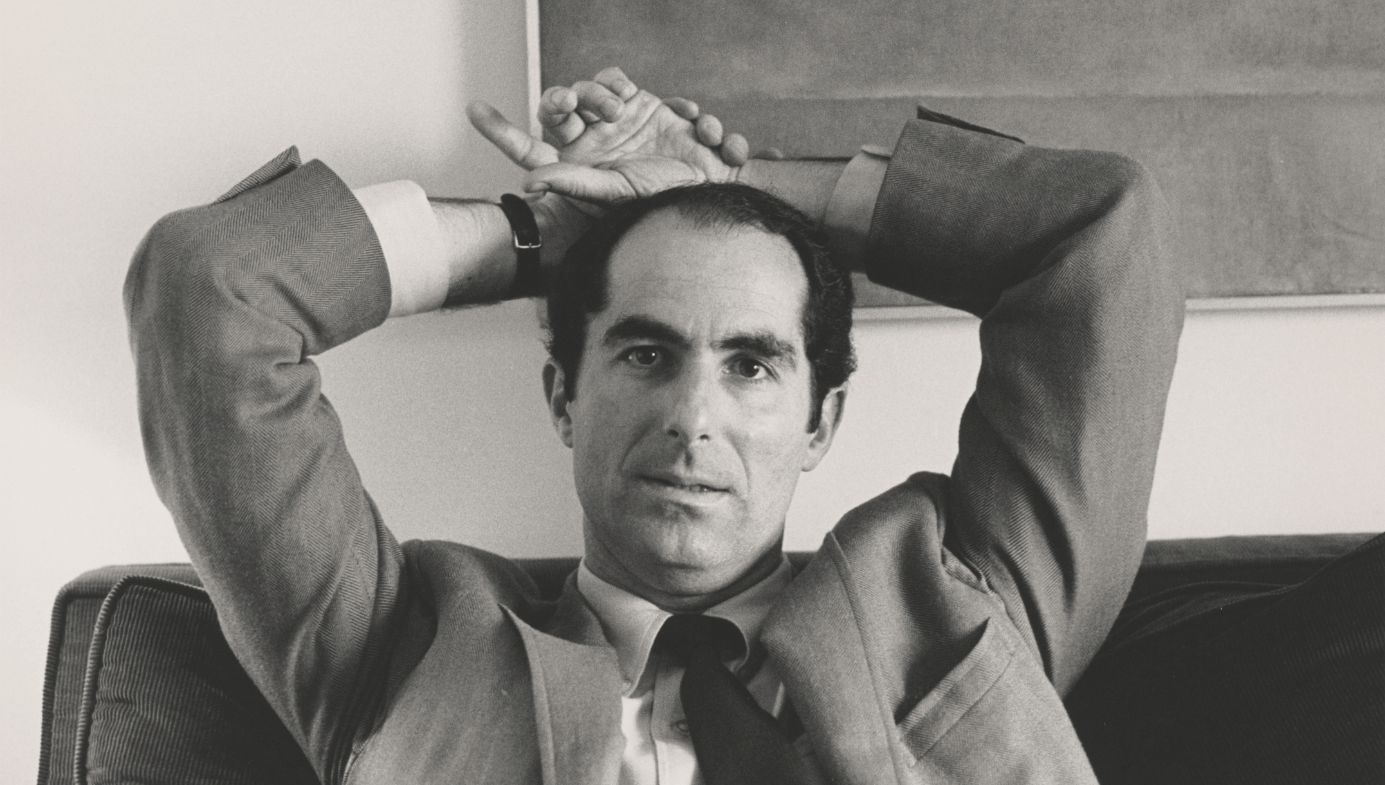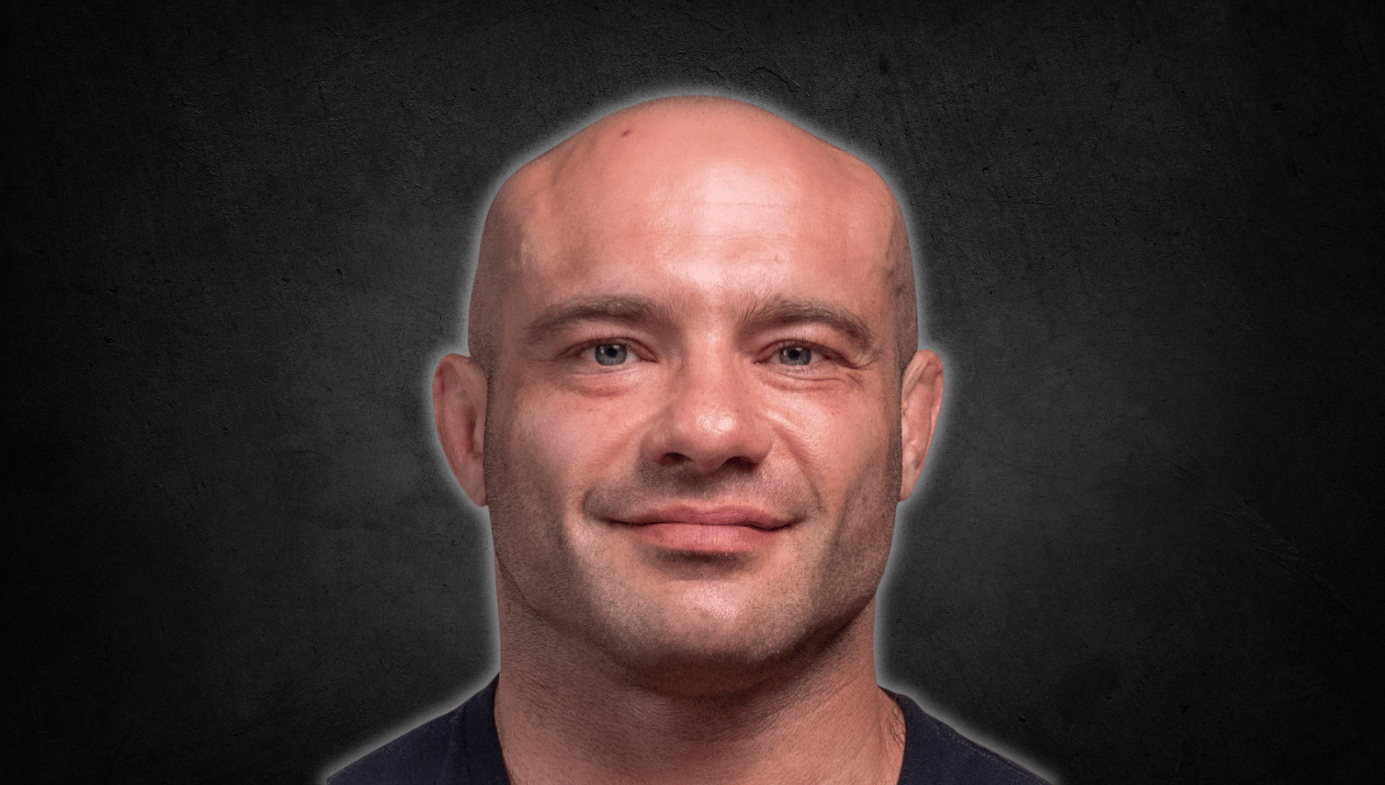The Problem Isn’t Technology, It’s Us
Iona Italia talks to Timandra Harkness about her new book, on our ambivalent relationship with personalised technology.
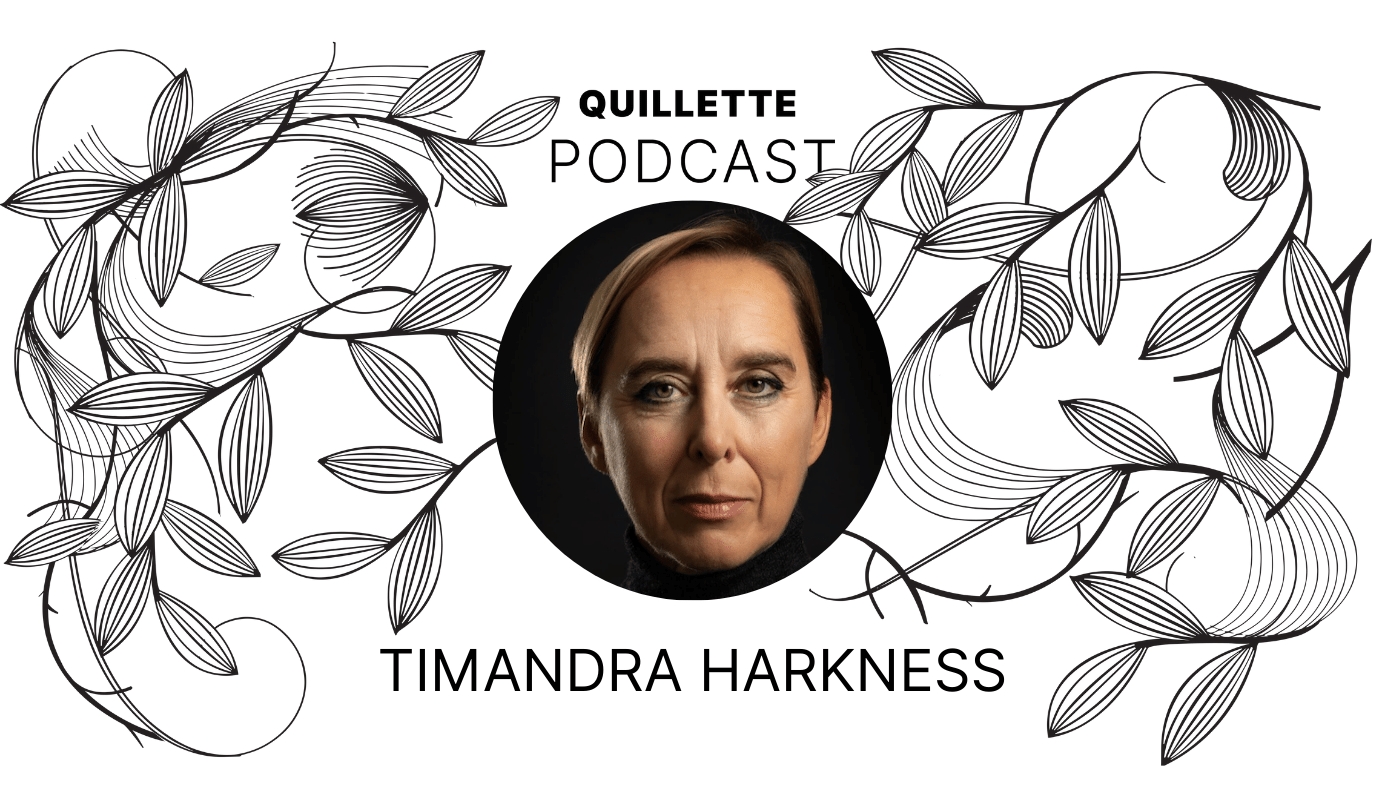
Introduction
In this episode of the Quillette podcast, I talk to veteran technology journalist and statistician Timandra Harkness, author of Big Data: Does Size Matter? about her latest book, Technology Is Not the Problem. We discuss a wide variety of situations in which personalised technology is changing our lives, ranging from the ways in which 3D printing is revolutionising fashion to the AI bots that are changing the nature of dating. We also examine the phenomena of microtargeting and real-time bidding and the methods both politicians and advertisers use to tailor their appeals to ever smaller segments of the population. Harkness sees all these changes as part of a larger move from a mass century to a personalised century. Finally, Harkness argues that the new cancel culture is quite unlike McCarthyism because of its obsession with the importance of personal validation, and we discuss how personalised tech and social media feed into our contemporary obsession with identity.
I hope you enjoy this interview with Timandra Harkness.
An interview with Timandra Harkness.
Hello, everyone. My guest this week is Timandra Harkness. Timandra is multi-talented. She is a prolific broadcaster, interviewer, journalist. She’s the author of two books: Big Data: Does Size Matter? and now Technology is Not the Problem and she’s also been the presenter of many radio shows, particularly on how to argue better. And she is a sailor, a motorcyclist and a painter and a statistician. And I gather you’re also studying philosophy.
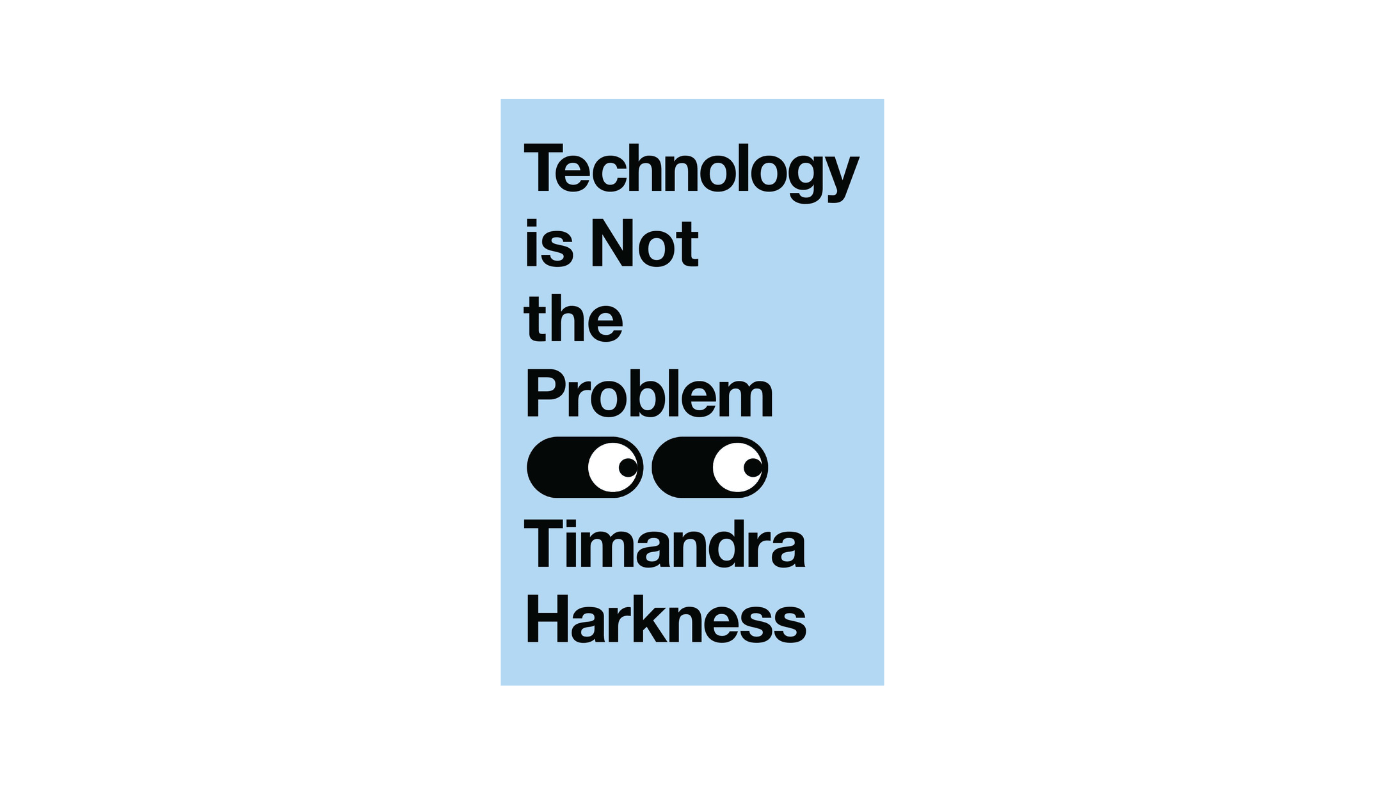
Timandra Harkness: That’s right, yes. I got hooked on studying philosophy at Birkbeck in London, so I’ve come back for a second master’s degree there.
II: I’m just going to dive in and start with a passage from the book. And then I’m going to ask you to give me some commentary on it.
Today we have more choice than ever before and more platforms in which to present ourselves. The business models are new, but they’re built on deep and ancient foundations of the human urge for self-expression.
Why do we embrace intrusive data collecting technology? Because we need to be recognised. We need to feel that we are seen by others as our authentic selves. We embrace this personalised world because it meets human needs that are emotional, psychological, even existential. I spend my professional life studying the trends that will shape our future, especially around technology.
But when people ask me to name the big idea that will most influence Western societies in the next 30 years or so, it’s not colonizing Mars, extreme longevity or brain computer interfaces. It’s not even digital data or AI, though they will be everywhere and will conduct most of our everyday lives through them. The idea that will do most to shape our immediate future is identity.
Identity is the dominant way we understand ourselves in the world today. It seems to meet our needs, both to be recognized for the unique person we are, and to be recognized by others as belonging to them and with them. For most of history, rigid social expectations pressured people to play narrowly defined roles in public, to hide sides of themselves that were important to them but socially taboo.
That’s why the pride slogan, bring your whole self to work, had such resonance. Today, we are encouraged to play roles that feel authentic to us, bringing to a public stage elements of our personality that would once have been private, if not secret. I’m skipping a little bit. As our freedom to choose how to live increases, our freedom to explore and express who we are expands with it.
What we are, which social categories we fit into, is less of a barrier than ever before, so we might expect that question to matter less and less. Instead, identity has grown into a powerful but contradictory idea. It is both a unique inner kernel and an outward projection, both an essential defining intersection of characteristics and a performed role for which we write our own script.
The word persona comes from the mask used in ancient Greek theatre which projected the actor’s voice and gave emphasis to his physical expressions. Now we each have an online persona that projects our identity into the world. We can be whoever we want, but who we are is now the most important thing from which everything must follow.
The problem is that our sense of self is fragile, driving us to want affirmation and reassurance from others. Why else would people, including me obviously, care so much how strangers respond to them on social media?
It is wonderful that we have so much choice, so much more choice than our ancestors about how to live our lives. That freedom, if we address it honestly and with courage, could give us a far stronger sense of who we are than any number of social media likes or followers. Ask yourself, on your deathbed, how will you want to look back at your own life? Won’t you want your obituary to consist of more than just being seen the way you see yourself, online or offline?
To say that you raised kind children perhaps, built houses that people lived in, got a PhD after years of work, or made an extraordinary garden out of an overgrown yard. That you founded a movement for political change, invented a new form of transport, or composed a song that will be sung long after you are gone.
None of these things are yours for the asking or the twitch with thumb on a smartphone screen. They demand effort, imagination and risk taking.
Unfortunately, although technology is not the root of the problem, it does make it ever easier to choose from a menu of pre -selected options, and harder and harder to find our own directions and build our own lives. Technology offers a constant menu of small choices and small social rewards, tiny affirmations that we are recognized, designed to keep us coming back for more.
Our screens are more seductive than the pool in which Narcissus gazed at his own reflection in the Greek myth. We don’t just get our online persona reflected back to us in all its edited perfection. We get instant assurance, in the form of likes, replies and personalized feeds, that others also find our reflection irresistible.
This book sets out to answer four questions. Where are we? How did we get here? Why does it matter? And where do we go from here?
OK. A few spoilers in that introduction.
TH: I should have got you to do the audiobook. That was great.

II: Thank you. I love reading aloud. So, where did the first inspiration for this book come from? When did you first start writing about it and why?
TH: Well, I started writing it quite a long time ago in the sense that I was researching and making notes, probably about five years ago. But it had quite a big change of direction because originally it was going to be much more of a follow-on from the first book about big data and much more focused on the technology and how exactly our data is collected, and profiles are made of us. And then those profiles are targeted with adverts or services or personalised feeds, whatever. But as I spent time on it, I began to realise that I was more interested in the why than the how. And when I wrote the first book, which is getting on for 10 years ago now, when I started it, I said to people: you know, all your data is being collected by these companies, and then they put it together and profile you, and people were genuinely surprised and horrified and really hadn’t grasped how much it goes on. But now I think most people do have some idea. They don’t necessarily know the details, but they have some idea that happens. And so, I thought, well, I mean, we all say we hate it, but we also hate it when it’s not, when they get us wrong, when the profiles are not close enough to who we are. So, we obviously have this very ambivalent attitude to it. What is it about us that makes this such a sticky form of technology in the sense that we keep going back to it? I mean, I constantly say, ‘I spend far too much time on social media’ and yet I keep going back to it. So, what is it about us that makes it so appealing, really? And that’s what led me to think about the identity question and zoom out and look around and say, ‘Well this is interesting, actually.’ If you look at the rest of society outside of technology we are very concerned with our identities and that other people should see us the way we see ourselves, and so I brought the two things together.
But there was a particular incident as I was trying to pull it together and make it concrete. I was asked to go and talk about data to fashion companies, which I found hilarious because I’m so un-fashion-conscious. I mean, I am as always sitting here in a plain black T-shirt. But that was what gave me a real insight because by having to think about how fashion companies use the new technology and data gathering and social media and so on, I realised that this was just a new form of what fashion had always done, which is, ‘We will sell you things that you can use to express who you are to others.’ It’s just that now a lot of that self-expression happens digitally. It’s not just you on a Saturday night going out with your mates wearing your latest outfits, looking really cool and declaring who you are by what you wear. This is now knitted into the technology, and I realised that that was the key to me understanding what the personalised technology is all about. And obviously at the same time I was able to say to the fashion people, “Look, data is really changing how this works for you, but not necessarily the core mission that you have.”
II: You were describing this Israeli fashion designer—Danit Peleg, I think that was her name, who has this vision that you’ll be able to just buy patterns and designs online and then 3D print them at home. You’ll buy your own fabrics and then you’ll feed them in, and you can decide on the spur of the moment what dress you want. Fashion companies are going much more in this direction: rather than trying to pull you along with them, they are trying to work out and respond very quickly and mobilely to the trends that are already happening out there.
TH: Yes and I think that was very interesting for me because, obviously, I realised that there was a technological thing where if you 3D print your clothes you can have them printed to your own measurements, but in some ways that seemed like a throwback to people like my mum who could actually buy a pattern, but it was made of paper and buy the fabric and then have to cut it out and sew it and make it yourself and that depends on a lot of skills.
And so, in some ways, I thought, this is a throwback to when people used to have to make their own clothes, like skipping back over the mass production thing. But in some ways, of course, it’s different because I wouldn’t need any skills to do that, except maybe some digital skills to go online and pick the pattern. And then you could probably see an avatar of yourself wearing the outfit and go, ‘Yes, I like how that looks.’ And then it would be sent digitally to your nearest 3D printer, and you’d choose which material to put in that would come out of the nozzle and there’s your garment that you picked. But that was the thing, you’re right, what she said was, ‘This transforms the business model because instead of, the companies make stuff and put it out there as a mass production and we go and choose what we want, they can follow where the consumer leads. And you see this all over the place: car manufacturers, Ford, which was famously any colour you like as long as it’s black. I’m not sure they actually said that, but that was the idea that you can buy a Ford car and it’s cheap and affordable, but you get exactly the same as everyone else. And now that has turned around. If you want a Ford, you order it and you choose all the custom features, like what size engine, what colour, what trim, whether you’ve got a heated steering wheel and all of that is, and you put a deposit down before they’ve even started making the car. So, by the time the car rolls off the production line, they know that the customer is waiting for it. So, the whole business model has changed.
II: You talk about in the book, a shift from a mass century to a personalised century. Can you talk a bit more about that idea?
TH: The historians are going to have a fit, I’m sure, because it’s very sweeping. But just look back around 100 years, at my great grandparents’ generation and how different the whole of society was. I just mentioned mass production: that was part of it. But also think about education: It was much more about everybody sits in a class and gets the same thing. Even healthcare was very much like mass programs of vaccination and big hospital wards. And the mass media is perhaps the easiest to grasp. There used to be, I don’t know, in the UK probably half a dozen newspapers, initially a few radio channels and then a few television channels. I’m old enough to remember Channel 4 in the UK launching. It was like, ‘Now we have four TV channels.’ And now, just think of the infinite number of options of listening and watching.
II: I think we might be a similar age, so I’ll have no references to you being old on this podcast.
TH: Well, it’s all relative. But I just mean that it’s a sign of how much things have changed, how quickly, that everyone now has their own media channel. Everybody gets their own individual feed, probably a lot of it through your own device: your mobile phone or maybe your computer. And it’s not the same as anybody else’s. As opposed to the old media where, yeah, you could pick your outlets—your newspaper, your channel—but then you’d pretty much get the same as everyone else at the same time in the same order. Now you don’t get the same as anybody else and you can go out and look for things, but the algorithms will choose things for you. Your network of contacts will choose things for you. And obviously you can choose things for yourself. So, I would say the mass century probably started way back in the 19th century with the Industrial Revolution and mass society. And the personalized century was really starting to get going in the 1960s or 70s: the idea that individuals want to be treated differently and every individual is unique and special, certainly in Western democracies, Western Europe and America, Australia. But I think that’s the key to some really big cultural and political and social changes. Even though, if you dig down, at heart, we still live in a mass society. It’s just that it is personalised, it’s micro-targeted to each of us or to very small groups of people. So, it doesn’t feel mass in the same way. But actually, if you dig down just a little bit, that’s still what’s going on.
II: Yeah. I look for things nowadays that might unite me with a larger mass of people. I was very happy when everybody was watching Game of Thrones and I felt I must watch Game of Thrones, more just to be watching the same thing as everyone else at the same time. And I really enjoyed searching the Twitter hashtag. The same thing recently with Baby Reindeer. I enjoyed the fact that everyone was watching it and therefore I felt I was part of an evolving conversation and that’s really quite rare nowadays to feel that you’re part of one large public thing. Where we are all uniting is around more distressing and emotionally fraught things like the war in Gaza, as opposed to around music and shows.
TH: Yes, yes, you’re right. It’s interesting that you say that, that we still want that big, shared experience. I’m very encouraged by the way that large public events are recovering after the pandemic, after them all being closed down. I was very disheartened by the ease with which people said, ‘Well, we won’t have people at football matches or concerts because nobody really needs to be there. They can watch it remotely on a screen.’ No, that’s not the same because you’re on your own. Part of being [there] is being part of a crowd. It’s not just that you’re spectating the thing on the pitch or the stage. It’s that you are there with others sharing the experience.
II: They should all be made to read Camille Paglia right away.
TH: Is that what she says?
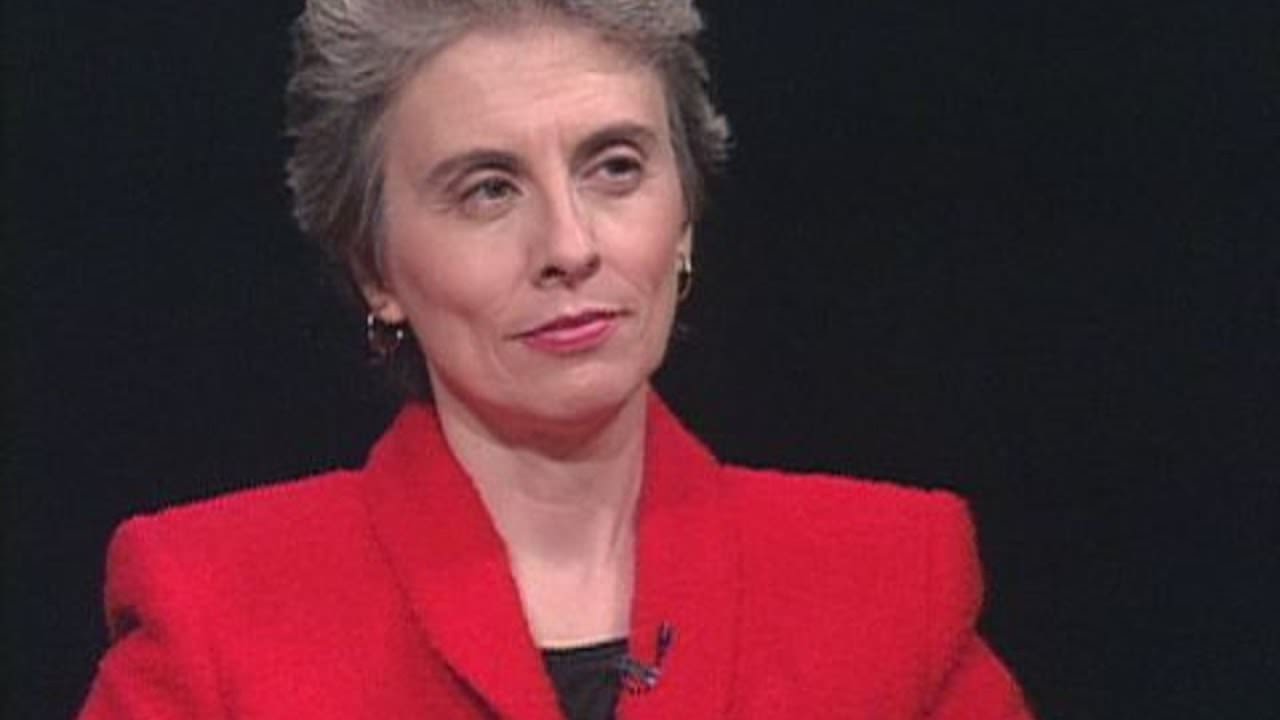
II: Well, I’ve just read Sexual Personae because all the Quillette editors, the other editors are all massive fans, randomly. And it’s all about the contrast between the male rational Apollonian and the female Dionysian ecstatic experience. So, that’s the Dionysian for you. By female, she doesn’t necessarily mean women, of course. Because at football matches …
TH: Yes, the masculine/feminine principle. Mind you, if you remember The Bacchae, the Dionysian females go on the rampage and tear the head off of the king that’s gone to spy on them. So don’t mess with the Dionysian.
II: Yeah, it’s scary. I’m not going to sidetrack myself onto the topic of Camille Paglia. I was fascinated by this, by how you described … you call it, I think, micro-segmentation. So, it’s not really personalised marketing because it’s not really at the individual level, but it is trying to understand people’s small groups and getting smaller and smaller target groups and targeting those groups. And you said that, ‘On average, I’m a 30-year-old man.’ Can you explain that? Explain yourself.
TH: What happened was, I was looking into how accurately data can be used to psychologically profile people. And this was particularly after the whole Cambridge Analytica thing, when a lot of people suddenly discovered data-driven political campaigning, even though it wasn’t at all new. And everyone panicked that Cambridge Analytica was manipulating voters. So, I found a related thing online which was the Cambridge Psychometric Centre, which is at Cambridge University. They weren’t involved in Cambridge Analytica, but some of the researchers that were came out of their work. And you could do an online psychological test and then you could give it access to your social media feed and let it analyse your social media feed and see how similar the results were. So, I did the online psychological test, which was great fun, and then I gave it access to my Twitter feed as it then was and it gave me slightly different psychological things, but it decided that I was male and aged around 30 and I’m neither of those things. I thought this was very interesting and then I looked at Twitter—at that point, you could look, and it would tell you what it had inferred about you, because it didn’t ask you for any of this information, and also what it thought your interests were. So, I looked at that and thought, ‘Well actually, if you showed me these interests and said, come on, you’ve got to choose: Is this person a man or woman? I would have looked at … okay it’s maths, it’s motorcycles, science, politics, engineering … I know it’s a stereotype but yes it’s a more male collection of interests, so I could see why Twitter would have thought that.
But obviously I’m not male and aged around 30. So, what’s happened is the program that tries to classify you and identify who you are has compared my Twitter activity with other people’s Twitter activity and then looked at the other people’s Twitter activity and who they said they were in terms of age and sex and so on and said, ‘Well, okay, this is the closest match. We think that, comparing your data with everybody else’s data, this is where we position you in the distribution. And that I just thought was a great example of the difference between big data supposedly knowing you better than you know yourself, and how humans know each other. Because as humans, we know each other as individuals. And the reason we might be able to predict what other people do is that we can think, ‘If I was them, I’d do this.’ Or ‘I wouldn’t do this, but I know Iona feels differently about this, so I think she might do that.’ We have a kind of human to human. And also, I know that you are Iona and you’re not anybody else. I’m not trying to compare you with millions of other people. Whereas all the algorithms do is they just gather data and then they go, ‘OK, well, let’s compare your data with all the other data we’ve got. We think you sit about here in this multi -dimensional graph that we’re building in this mathematical space.’
So that’s why I say, on average I’m a 30-year-old man because on average people whose Twitter activity looks like mine would be a 30-year-old man. Now obviously, I’m not, so this is where the prediction falls down but if you’re just looking to advertise to people, it doesn’t really matter if you get some duffs, if you’re not right all the time, as long as you’re right enough of the time, then that’s fine. For some other things, it really does matter. If you’re looking at identifying people who might be a danger to society or if you’re trying to diagnose illnesses, then it really matters if you get it wrong.
II: And also job adverts. You said that one of the things that companies have had to dial back on is if you show your targeted ads to the people who are most likely to respond, then in many fields, it’s men who are most likely to respond. And then you end up targeting more and more efficiently and fewer and fewer women apply because fewer and fewer women are even shown the ads.
TH: Yeah, exactly. That’s where the efficiency of the advertising algorithms and the actual goals of the people of the companies trying to recruit a more diverse workforce come into conflict. Because, as you say, if you’re paying for the ads on who gets the most clicks through, then you go, ‘OK, well, we’re going to show it to the population who’s most likely to click through.’ What do you know? It’s men. And then I never get to see the advert. I could have been head of Microsoft by now, but I never got to share in the ads. So here I am.
II: I’m sure you would have been, but I’m quite glad that you’re not, because what you do is much more fun for the rest of us. You described something I hadn’t heard of before: real-time bidding. Can you explain what that is?
TH: This is the reason why, when you open a webpage or something or even look at your social media feed, you see an advert which is targeted for you. Whoever the company is that is in charge of filling that advertising space—and it’s often Google or Meta because they run a lot of advertising on platforms even that are not their own—they will basically open the bidding up and all this happens, it’s real-time bidding, it literally is in the microseconds between you clicking to open the webpage and the webpage finishing loading. It’s in one way an extraordinary piece of technology. So, they will say ‘Okay I have a space here it is being looked at in this time and place by, as far as we know, a person who falls into these categories and what do we bid for showing this advert to this person at this time?’ And advertisers who want to reach people in your category will put in bids and say, ‘Well, this is worth this much for me to show this advert to this person at this time.’ And mostly the highest bid, although some of the companies will also put some controls in so that you don’t just see the same ad all the time or so that you don’t see ads that are completely irrelevant to you. But it mostly is that the highest bid will get the slot and you will see that advert. The kind of filters they might put in would be the very broad ones like which country you’re in, are you an adult, and then obviously the things like are you male or female, are you interested in engineering and motorcycles, have you previously shopped at this company. So, all these things will be in your data profile, and they might value those things more or less highly. The example I got directly from one of the advertising platforms explaining how to use Google Ads was: Well, suppose you want to show your advert to soccer fans, we might say, ‘Okay well that’s a dollar, but if you want it to be a male soccer fan in Argentina, then that’s $1.32 because we have targeted it more precisely at the kind of person that you’re trying to reach. And this is what goes on absolutely all the time behind the scenes. It’s not even that new. In fact, it was first described way back in the young days of the Internet in, I think, the 1980s. I’m not absolutely sure about that, but it’s not that new as a technology, but it obviously has got much more efficient, and they have much more data about us. Although, they still get it wrong. It’s so funny. I don’t care that Twitter thought I was a man. In fact, Twitter eventually worked out that I wasn’t a man, and I didn’t like the new adverts. So, I went in and changed it back and lied to them and said, ‘No, no, no, I’m a man.’ So, I still get the man’s adverts. But I didn’t defend me at all. But at one point they showed me adverts for the wrong football team, like, ‘Buy Aston Villa strip,’ and I was outraged.
II: That was a ridiculous mistake to make.
TH: Well, my Twitter profile has me wearing a Liverpool hat, so... yeah.
II: One of the things that I think I already knew, but I became much more aware of it reading the book is how many choices have already been made for us at the moment when we are selecting things, how much choosing and decision making goes on behind the scenes.
Sometimes I find it convenient. I watch a lot of dance videos on YouTube, and I love just surfing the YouTube algorithm because it will just show me more beautiful contemporary dance videos all night if I want. I don’t even have to search. It knows exactly what I like to see and that’s great. But on the other hand, at the other end of the scale are dating apps, which is unfortunately something I’ve had way too much experience with. And there it’s completely mysterious. The app keeps asking you to spend more money in order to have a better selection of people or larger selection. So, you know they’re not showing you everybody. And even when you click on somebody to match with them, they say, ‘Spend more money by super liking in order to have a better chance of us showing your like to this person.’ So that is really horrible, the sense that the men have been pre-filtered, and I have been pre-filtered. So, there I have a very, very strong sense of missed opportunities, especially given what I am actually looking at.
TH: That’s an interesting example because in some senses they are showing you what you’re missing and saying, ‘Just give us a bit more money and we’ll actually pass your message on to this guy.’ But also, you don’t know who you’re not seeing.
II: Well, they’re not. You don’t know that they will. And you don’t even know if paying the money does pass your message on. There’s no guarantee.
TH: That does sound really horrible, I must say.
II: It’s awful. But there are many examples like that. And you talked, you said even in political campaigning, one somewhat disturbing thing is that different political messages can be given to different groups. So, different people are actually hearing different programs, different policy platforms for the same politicians.
TH: Yes, that is something that worries me. Obviously to some extent, it’s always been true that politicians will give slightly different messages: they’ll emphasise one thing in an interview with one newspaper and another thing to another newspaper because they’re thinking what the readers are concerned with, but that’s definitely got much more micro-targeted recently. That’s partly because we do so much interacting with each other and with political parties through social media and direct messaging. So whereas it might not have been worth their while to print different leaflets and deliver different leaflets to different addresses on the same street, they would have gone, ‘Okay, well, in Woolwich we’ll print a leaflet about stuff that’s happening in Woolwich, what we know from focus groups people in Woolwich are concerned about and everyone in Woolwich will get that leaflet and people in Kensington will get a very very different leaflet. It’s a very, very different part of town. But now, of course, if they’re delivering individual messages by social media they can say, ‘Well actually we know from other … we have imported data, we bought data from a data broker, so we know Timandra’s hobbies, preoccupations and we may have been able to tap into a social media feed and see what keyword she’s concerned about and so we can actually pick an advert and target it directly and we can also try different versions of adverts and see which ones get a better response and drop those that don’t get a response. So, we’re constantly updating and testing our adverts and using different versions. And the thing that bothers me about that is less the, ‘Well, we’re going to give you the message we think will appeal to you,’ because campaigners have always done that: persuading human beings is the bread and butter of politics. It’s the fact that I don’t know what other people are getting. So, we’re not part of one big conversation where we all get together and say, ‘This party is promising us this economically, but I don’t like their foreign policies. But then again, the other party is not really on top of the economy, but I like what they’re saying about education.’ And we have one big public argument about it and then we go to the vote. It’s very hard to have those kinds of public conversations when you’re getting different messages. I suppose it goes back to what we were saying about, if you’re all part of a big audience for a music concert or for a sports event, you are all there together as part of the same crowd. But if you’re all on your own at home watching on a screen, you’re getting an individuated experience and you don’t: you all get to share the main event, but you don’t get to share with each other.
II: Yeah, talking about politics, you had some interesting things to say about polarisation. So, you spoke to a guy called Chris Bail who runs the Polarisation Lab. I can see that I wrote down a quote here, so I’m going to read it. Like many researchers, he thought that the answer might be to get people out of an online echo chamber and expose them to a wider range of views. Instead, his experiments found that more exposure to strong opposing views often hardened political positions because, “stepping outside the echo chamber was not creating a better competition of ideas, but a vicious competition of identities.” I thought that was extremely interesting. Social media is all about presenting a version of yourself and you said that people are both less likely to feel strong affiliations with larger political structures like political parties. But nevertheless, they have a keener sense that other people are enemies. There are enemies out there, political enemies, they’re less likely to want to be friends with people who think differently from them politically.
TH: Yes, that’s very well put. It was great talking to Chris and his book, The Social Media Prism, which I very much recommend, because you’ve got the real sense that he’s a researcher who actually wants to find out what the answers are and is prepared to test his ideas and go, ‘I know I was wrong there.’ Because he very charmingly tells the story of how he woke up in 2016 when Trump was elected and went, ‘What? How can that have happened? I don’t know anyone that voted Trump.’ And then went, ‘Yeah, OK, maybe there’s a problem here. Maybe my social media feed is not, after all, representative of the whole of America.’ And then he went out and did this research and thought maybe it’s echo chambers. And found that it wasn’t. And it was him saying, ‘Actually, I thought people went on social media to exchange ideas, but they don’t; they go to build their identities, because it’s the perfect platform for that, because you get to curate the version of yourself that’s out there. And the way you interact with other people can become very tribal and he talks about ‘false polarisation,’ which is the perception that the people on the other side are a very long way from you and that they are hostile to you. People on both sides feel this. So, both sides feel that the other side is very extreme and very hostile. Obviously, then you feel defensive and hostile yourself. Whereas actually, when they were able to take them out of that context and ask them about specific policy issues, for example, they found that there was much more agreement than people expected.
But your point about we feel less affiliation, but we take it more personally, that applies beyond social media contexts. A number of surveys over the years have found that we’re much less likely to say that we feel a strong identification with a political party, but we’re more likely to say that we wouldn’t be friends with someone from the other main political party or that we wouldn’t want one of our children to marry somebody from the other political party. And the same happened in the years after the Brexit vote in the UK: people said they wouldn’t want one of their children marrying somebody who voted the other way. Although interestingly, with Leave voters, it was about half the people said, ‘No, I wouldn’t want my child marrying a Remain voter.’ Remain voters felt much more strongly, and I think about three quarters of them—this is off the top of my head, but it’s certainly a much higher figure—said they wouldn’t be happy to have their child marrying a Leave voter, so they obviously felt more strongly about it. But it’s the taking things much more personally. Instead of saying, ‘Okay well we disagree about this, but I can still like you and respect you as a person.’ It’s like, ‘No, you’re a bad person because you voted the wrong way and you’re also more stupid and less trustworthy.’ All these surveys bear this out: that we perceive people who politically disagree as worse people; they’re liars, they’re selfish. And again, this goes both ways. This is not a one-way feeling.
II: Talking about this sense that we both have fewer overarching political affiliations and take things more personally, you tell it beautifully: the extraordinary story of Kevin Price, who is a porter at Clare College, Cambridge and... he was a member of, I think, the Cambridge City Council. He was a Labour Party member and also trade unionist. And he...
TH: That’s right.
II: The council had a resolution that they believed … their resolutions were something like ‘Trans women are women and trans men are men.’ And he said that he believes in equal rights for trans people, and he supports all the legislation that allows them equal rights and dignity. But he didn’t think that the council should be taking a stance on this controversial issue because there are trade-offs between different interest groups and not everybody agrees with this kind of statement and its implications. And the Clare students lobbied to have him fired and I think he was fired from his position, and they said that he made them feel …
TH: No, I don’t think he was fired. They lobbied to have him fired, but he wasn’t.
II: He wasn’t fired? Good. And you said that some people compared this, the students’ actions to McCarthyism, but that actually that it’s rather different. The Kevin Price story was not like McCarthyism. McCarthy saw communists as a threat to the US nation, as adversaries in a battle between superpowers during the Cold War. So, he was paranoid about what they might actually do to damage American interests. So, it was again about overarching larger allegiances. With the students, now I’m going to quote you, “they claimed that somebody holding those ideas,” Kevin Price’s ideas—which it wasn’t even clear exactly what his ideas were. He just said he didn’t think the council should take a stance on this …
… somebody holding those ideas should not be in a position where he helped students, because that would make some of those students feel unsafe. Not because there was any suggestion of physical threat, but because he might not see them the same way they see themselves. There was a danger that trans or non-binary students would not see themselves reflected in Kevin Price’s eyes as the person they felt themselves to be. And that jarring dissonance of perception was felt as a form of violence to their personhood. It was personal. It was about people’s feelings, and what protection those feelings deserve from those in power.
Yeah, that was an extraordinary image, that what we are hoping for—it ties back in with technology, social media, et cetera, that what we’re looking for is to see ourselves reflected in other people’s eyes. And we want to see our true selves recognised by other people. So that we’re going against the Robbie Burns wisdom [in the poem, “To a Louse” (1786)] that,
O wad some Pow'r the giftie gie us
To see oursels as ithers see us!
You can never see yourself as others see you and you can’t control how they see you and what they think of you. You can’t do it. You can try to influence it, but you don’t have control. And the students really want that control. They want to feel validated by being viewed and understood by him in the same way as they see themselves. It’s quite an extraordinary thing and an extraordinary thing to request politically as well.
TH: Well, yeah, that was what really struck me about his story in particular. He’s obviously not the only person to have come up against demands that they should lose their job because their views are deemed unacceptable. But I thought he was a particularly strong example because of his long history in the trade union movement, the Labour Party. He joined his first trade union in 1975. So, during the period of the miners’ strike in the UK, which I talk about in the book because it was a very key turning point really in the change from the old style of politics, which is very much about class and economics, to the new style of politics. I felt that he had really done that journey. He would have been in a support group for the miners on strike in the 1980s as a trade unionist. He was a lifelong member of the Labour Party, a Labour councillor, did lots of work around housing and poverty in Oxfordshire and yet the thing that made him resign from the council was he said, ‘Well I can’t support this motion because although, as you say, you know I support equal rights and protections, but I don’t think the council should say trans women are women, trans men are men, because not everybody agrees with that and there are some people in fact who feel strongly that that’s not true.’ And that idea that other people’s feelings ... that you should be required to see people in the same way they see themselves I think absolutely sums up the new form that politics is taking. I like that Robbie Burns quote, I’m going to go and look it up, because I think it can be very good for us to see ourselves as others see us and it may be jarring and it may be uncomfortable but sometimes we really need other people’s actual perception of us to go … What’s that website? Is it Reddit that says, ‘Am I the asshole?’ When people tell stories about themselves: am I the asshole? And well, I don’t know, maybe it’s just the ones I see, but the answer is nearly always yes. But what you probably want is your friends to go, ‘Yeah, Timandra, really, you’re going to do that? Really? You shouldn’t because that would just be …’ But we could also be positive. Somebody can say to you, ‘Well, actually I think you should pursue this. You know, you have potential here, if you put a lot of work in you could maybe be quite good at this,’ or certainly develop a side of yourself you didn’t know was there And that’s also something that you don’t get if somebody sees you the same way you see yourself nobody’s going to look at you and see that you have potential to become somebody else and surely that’s one of the best things we can do for each other.
II: One of the problems, I think, is that we are able to carry this curated little world around with us. Even when it’s sort of stressful. I used to argue with people a lot on Twitter. I was like a drunk going into bars and picking fights. It was just ridiculous. But I don’t know if it’s any better now, because now, if somebody’s rude, I just instantly block them. And I actually take great satisfaction in it. It feels like I’m weeding or something. Or I’m squeezing a spot. I’m just tidying up my little Twitter space. People have always tried to control other people’s views of them by signalling, through their houses and their furniture and their parties and their food and their clothing and all those kinds of things.
But now we have an entire little miniature world of which we are the centre. My Twitter is extremely narcissistic. I do have to follow some journalists and things because of my profession, but I spend a lot of time looking at my own feed and what people have said to me and thinking of things that I’m going to say and...
So, you know, I am the centre of that world and it’s very comforting because I’m not really the centre of many other worlds.
TH: That’s a very good point. It is the one place where you can actually exert a lot of control. And I think that’s part of the appeal that we don’t feel we have much agency in a lot of our lives. But you can control what’s on your social media feed, at least what you put out, and to some extent what other people are allowed to post. I think that’s definitely part of the appeal, because the danger is that, because that is the place we can control, we spend more and more of our time and energy there and we don’t get out and take the social risks of interactions that we can’t control or doing things in the real world, where anything can happen and you might try and start something and it doesn’t work or it doesn’t work the way you foresaw it working, at least.
II: Yeah, and you can’t just mute people in real life.
TH: And that’s the way social media is designed. It’s designed to give you that satisfying sense of you can do something and there’s only a certain range of things that are going to happen. Of course, that’s not always the case. I know some people have very terrible experiences and they get mobbed, or they get thrown off and so on. But I think the way it’s designed to work is that we go on and we have a very satisfying experience because we have a large element of control, but not complete control because otherwise we’d be completely satisfied and stop going back.
II: Yeah, yeah, yeah. There has to be still some weeding to do. Also, part of it is that it’s like a staging area. Is that what it’s called when you’re designing a website and you need a fake website so that you can try out different coding things without ...
TH: I’ve just had my website redesigned and that was exactly what it was. You have a dummy website and you try it out until you like it. Yes, I like that analogy.
II: Yeah. It feels like that. Even though, of course, it can feel high stakes to people if they’re in the throes of being mobbed. But generally, it feels very low stakes. And I think that’s part of why people are ruder than they are in real life. Also, some people are very generous and very sweet. People feel able to say things that they would definitely not say to strangers in real life. A friend told me that I said things on Twitter that he wouldn’t say to his wife, which I don’t think was meant as a compliment.
TH: I don’t know, it depends what he means. One hopes that he might be more circumspect in what he’d say to his wife than to strangers on Twitter, or does he mean the other way around, that you’re more revealing?
II: I’m more revealing and more intimate with a stranger than he is with his wife, was his comment. But it does have this low stakes feel, which can lead you to opt out of real life, because real life is higher stakes.
TH: Definitely. I think it’s the sense of control and also of a kind of insulating layer between you and the other person. I remember I was appalled, but also completely understood, when I read a survey—and this was before the pandemic, so this was a little while ago—a survey of American teenagers that asked them how they preferred to interact with their friends. And number one, above meeting face-to-face, was text messaging. I was appalled. But then I thought, well, yeah, actually, I remember being a teenager and the social agony of constantly trying to do the right thing and not do the wrong thing because... the stakes feel very, very high when you’re a teenager because everything is about what your friends and peers think of you. And if I had had text messaging then, I would definitely have preferred text messaging because it gives you a second to think about how to respond and the other person can’t see your face while you’re reading it. So, it’s definitely an insulated, a safer form of interaction than actually hanging out with people in person and having to have a real-time conversation. But, of course, that is absolutely what being a teenager is about: hanging out together and the agonies of making mistakes and learning how to interact with people. And then you get to our age and look back and go, ‘Thank heavens I don’t have to do that anymore,’ but actually it was fine. You learn a lot of stuff then which you can apply later in life.
But yeah, I think that does apply to all of us. I’m encountering this thing of voice messaging where instead of either just ringing somebody up or texting them, you record a voice message and send that. I find it personally inconvenient because there’s a lot of situations in which I can look at a text message, but I can’t listen to a voice message.
II: Yeah, me too.
TH: And so, I do slightly think, ‘Well, either send me a text message or just ring me.’ And then if I can’t answer, fine, leave a voicemail, but I think that’s a very interesting development. It’s asynchronous. It’s like you’re not having a conversation like you and I are having now where you have to listen and stop talking and respond to the other person. You record your thing, and you send it and then the other person listens and records their thing and sends it back.
II: It is very odd. It’s like back to the days of the epistolary novel, when people really had to communicate asynchronously because the technology was not there to allow them to communicate more directly, back in the days of, in Jane Austen’s novels where you can’t go and see each other because it’s been raining and the five miles that separate you are too muddy, impossibly muddy. I used to live in Essex. I know what it’s like when things are impossibly muddy. It’s no joke.
TH: So, you send a man on a horse with a letter.
II: One of the things that has really struck me, especially lately, is—and you talk about this a lot in the book—is the moving away from a sort of starting from scratch when you are designing things or writing things or saying things and closer and closer in more and more situations towards the drop-down menu and the autocomplete idea. So now when I’m about to write an email, it’s giving me many autocomplete suggestions. In fact, full sentences. It’s like, ‘Thank you so much, but your article is not a good fit for Quillette.’ You know, it was suggesting that to me the other day. It was like, ‘Would you like to write this?’
TH: Well of course the next thing will be that and apparently Microsoft just announced today they’re releasing next-generation computers that will have what they call copilot, it’s their AI assistant and this will be a Large Language Model type thing I imagine that you could just say, ‘Write me a rejection email that has this person’s name and says they could apply again or we wish them luck in the future,’ and that will just instantly appear, written by an AI, and then you can check it over and send it. At least I hope you check it over.
II: Yeah, it does feel that AI is there too at the moment. It’s mostly writing things that nobody actually wants to write or read, but people have to, like cover letters for job applications or things like that, or diversity statements. A friend was telling me all the diversity statements are written by AI now. So, at first it was a real imposition, but now you just ask Claude to write your diversity statement, you give them a few details. And so, some places have stopped demanding diversity statements now, and it’s not because of political convictions, it’s just because they’re all written by AI, so what is the point?
TH: That’s so funny. So, they’re meaningless. Well, I did see a cartoon recently. I’m afraid I can’t remember who drew it. But the first frame was a guy saying, ‘Well, this is great. I can put in one sentence and the AI will turn it into an eight-paragraph email.’ And then the second frame is this woman going, ‘It’s great. I get this eight-paragraph email and the AI will reduce it to one sentence for me. So, I don’t have to read it.’ It’s like the AI will be writing it, the AI will be reading it and what are we going to be doing?
II: Yeah, I know. Did you see the founder of Bumble, the CEO at Bumble said they wanted to have the AIs dating each other? And then so you could skip the initial chatting and just be introduced to the people your AIs had preselected for each other.
TH: It’s such a bizarre idea. Imagine this script where the two AIs really hit it off, but the humans don’t. And so, the two AIs start an affair behind the backs of the humans. But it’s such an odd idea that, for something where the entire point is to get to know another person and start a relationship with a human being that you would outsource that to an AI. Of all the things to outsource, the getting to know somebody is … I just find that very, very odd.
II: Yeah, it is really odd. So, is there anything we haven’t talked about that you wish we had talked about? Or that you wish I’d asked you?
TH: Well, you’ve done a remarkable job, considering how much I shoehorned into this book.
II: Thank you. There is so much more in there that I haven’t touched upon at all. So, this interview has been very spoiler-free. There is a lot of historical and political stuff.
I’m going to just end by reading a very short quotation for everybody to think about. This is your homework. Go away and think about this.
The problem with forming yourself an identity so both you and others recognize you in the world, is similar to the problem of having a digital doppelganger. Both are a pinning down of a person who should be ever changing and growing into somebody new. Both have in focus what can be categorised and measured about an individual, what can be observed from outside. Both reduce human beings to what, not who, we are.
So, go away and think about that. And in the meantime, make sure you buy Timandra’s book.
TH: Thank you very much.
II: Thank you, my pleasure.


